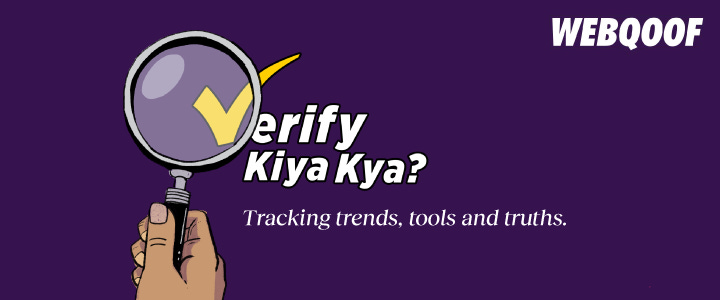Meta’s Move to Drop Fact-Checkers: What’s at Stake for Truth?
As fact-checkers, it is crucial to set the record straight. Consider financially supporting our work!
Dear Reader,
The new year began with several Indian news organisations and social media users publishing incorrect information about the Human Metapneumovirus (HMPV). Just when we thought we should probably do this year’s first newsletter on how to report virus outbreaks responsibly and factually, the news about Meta pulling out from fact-checking partnerships in the US broke. Meta founder Mark Zuckerberg, on 7 January, announced the organisation’s decision to end the third-party fact-checking program and replace it with X-like community notes. This move aligns with the approaches of the new US government led by President Donald Trump.
While the announcement was not entirely unexpected, what came as a shock was Zuckerberg seemingly throwing the fact-checkers under the bus. Zuckerberg said third-party moderators were “too politically biased” — and it was “time to get back to our roots around free expression”.
As fact-checkers, it is crucial to set the record straight. So, instead of discussing responsible health journalism this month, we're here to debunk the misinformation surrounding Meta's decision. So, let's break down Meta's decisions in four points.
What Was Meta’s Third-Party Fact-Checking (3PFC) Program?
Meta's 3PFC program was launched in 2016 to counter misinformation on Facebook by partnering with independent fact-checking organisations. The program then expanded into different countries and expanded its scope by including other platforms like Instagram, WhatsApp, and Threads.
These organisations reviewed flagged content, providing accurate labels and detailed explanations for the users. Fact-checkers NEVER HAD the ability to delete posts but could only label posts as mis/disinformation — and hope that it reduces the spread of false information.
Did Fact-Checkers Have the Power to Censor Content?
No.
Zuckerberg's statement and campaigns by right-wing governments worldwide have referred to fact-checking as censoring content. So, to reiterate, fact-checkers DO NOT have the authority to remove or censor posts. In reality, their role was limited to reviewing content flagged by users. Based on their assessments, posts were labelled with warnings and links to factual information were added. The decision to reduce the visibility of false claims was Meta's prerogative, not the fact-checkers.
“Fact-checkers do not remove content, accounts, or pages from our apps,” the 3PFC media page on Meta clearly states. Despite that, in his address, Zuckerberg said, “A program intended to inform too often became a tool to censor.”
What About Community Notes on X (Formerly Twitter)?
Zuckerberg suggested adopting a community-driven model similar to Community Notes on X. While Community Notes relies on a collective of volunteers to fact-check and add context to posts, the system has faced challenges, including lack of expertise, uneven coverage, and susceptibility to group bias. Researchers and fact-checkers have shown, with evidence, that the Community Notes program failed to limit the reach of posts or maintain information integrity on the platform.
What Does This Mean for Fact-Checking?
Ending the 3PFC program will reduce the visibility of fact-check stories and cause organisations to struggle for funding, weakening their ability to combat misinformation. This will also mean trouble for journalism, as there will be no checks and balances when publishing “news” online. We all have seen misinformation creating violence, lynchings, and causing people to lose their lives and livelihoods.
Misinformation is a global problem, and funding fact-checking efforts is crucial to maintaining the integrity of information on platforms like Meta.
Fact-checkers work tirelessly to uphold truth in the public sphere, often with limited resources. Now more than ever, we urge you to rally behind us – by supporting our work, spreading awareness about our role, and holding platforms accountable for the accuracy of content they host. Information integrity is a collective responsibility; together, we can fight against the tide of falsehoods.
Meta and other platform’s efforts to further public service journalism allowed us to move beyond the scope of fact-checking. This includes our work on media literacy campaigns, COVID awareness drives, election analyses, and special stories, which helped us show you the dangers of AI and financial scams. So, pulling out funding from fact-checkers will also adversely impact such initiatives.
That’s when we will need your support even more. If you value accurate reporting and the fight against misinformation, consider financially supporting our work.
Next month, we'll focus on how to do fact-based health journalism that educates without creating panic. Stay tuned for practical tips and best practices to tackle misinformation around health crises.
Until then, stay informed and don't be a WebQoof!
Also Read:
*Already a member of The Quint? What a star! Your support empowers us to question everything.
Want us to cover a story? Write to us at editor@thequint.com or reply to this email.




